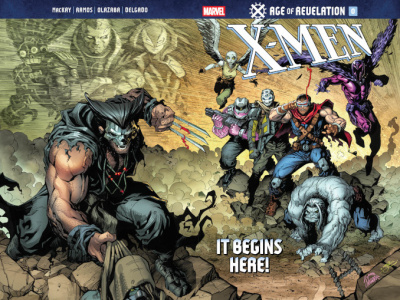I read with interest recent ICv2 postings on both sides of the fence regarding early release of product to mass merchandisers, with the result being only allocated or no product left for specialty retailers. The usual response to these specialty retailer complaints are either 'we didn't see it coming,' 'we saw it coming but didn't anticipate well enough,' or most provocatively, 'well, that's just the way it is.'
Most manufacturers take the time to respond to these complaints in order to mollify the small retailer. This is because our aggregate orders are nothing compared to the big boys, but still add up to a large enough penny that the manufacturers don't want to forego them completely. They then pat us on the back and remind us that if we offer the kind of service and knowledge the big boys don't, we can carve out a little niche for ourselves and really do quite well.
In addition, there are always other specialty retailers who echo that sentiment and say that those who carp about lost sales are too busy complaining and being lazy and whatever else we do to take advantage of their specialized position in the marketplace. I assert that this is a bunch of crap.
The kind of person that buys his trade paperbacks and manga at Barnes & Noble or Borders or Electronics Boutique (and now my local Stop & Shop too) does so out of convenience only. The purchase is almost always an impulsive one -- perhaps at the insistence of a child, or because a great cover caught the eye, or because of a tapped into nostalgia -- but not because of prior knowledge about the availability or existence of those products at those stores. That would only kick in after the first visit wherein the same buyer became aware that such items were available at those outlets at all.
These buyers, having found their trades or cards or toys at one of the big boys will continue to shop there because that is where they go to shop normally. The percentage of people that take a random experience at B & N and translate it into a visit to a specialty retailer is infinitesimal at best. If these people bought Watchmen at B & N, but couldn't find V for Vendetta there -- then they would just have B & N special order it. The small wait is irrelevant because they go to B & N regularly anyway. This transient, mainstream audience comes to our stores by default, not by design. All the new faces I see every year are because I actively and purposefully advertise on television 9 months of the year, and because of the good word of mouth we enjoy from our customers.
I keep the majority of my customers because of my service and knowledge and all the small things I can offer them as a specialty retailer. But until someone comes in, they can't experience any of that and so until they see my ad or hear from a friend of theirs who frequents my store, they will continue to go to the big boys. Our customers come to us because their long-term involvement in comics or games has left them predisposed to do so; we can't count on someone going into B & N and becoming so magically transfixed by what they see that they will go home and immediately look up all the local specialty retailers in their area.
One last note that should put the service and knowledge fallacy to rest: how many times has someone called you up and taken 5-15 minutes of your time asking about an item and its' availability? Then, when you say you don't have it, but can have in within 1-7 days, they say that's ok, they'll just call around and look for it elsewhere. Sure, that's their prerogative. But it proves that what motivates the purchaser first and foremost is convenience and, lest we forget in many cases, price. Except for the regulars who have come to know us, service and knowledge are distant cousins to instant gratification.
The opinions expressed in this Talk Back article are solely those of the writer, and do not reflect the views of the editorial staff of ICv2.com.







